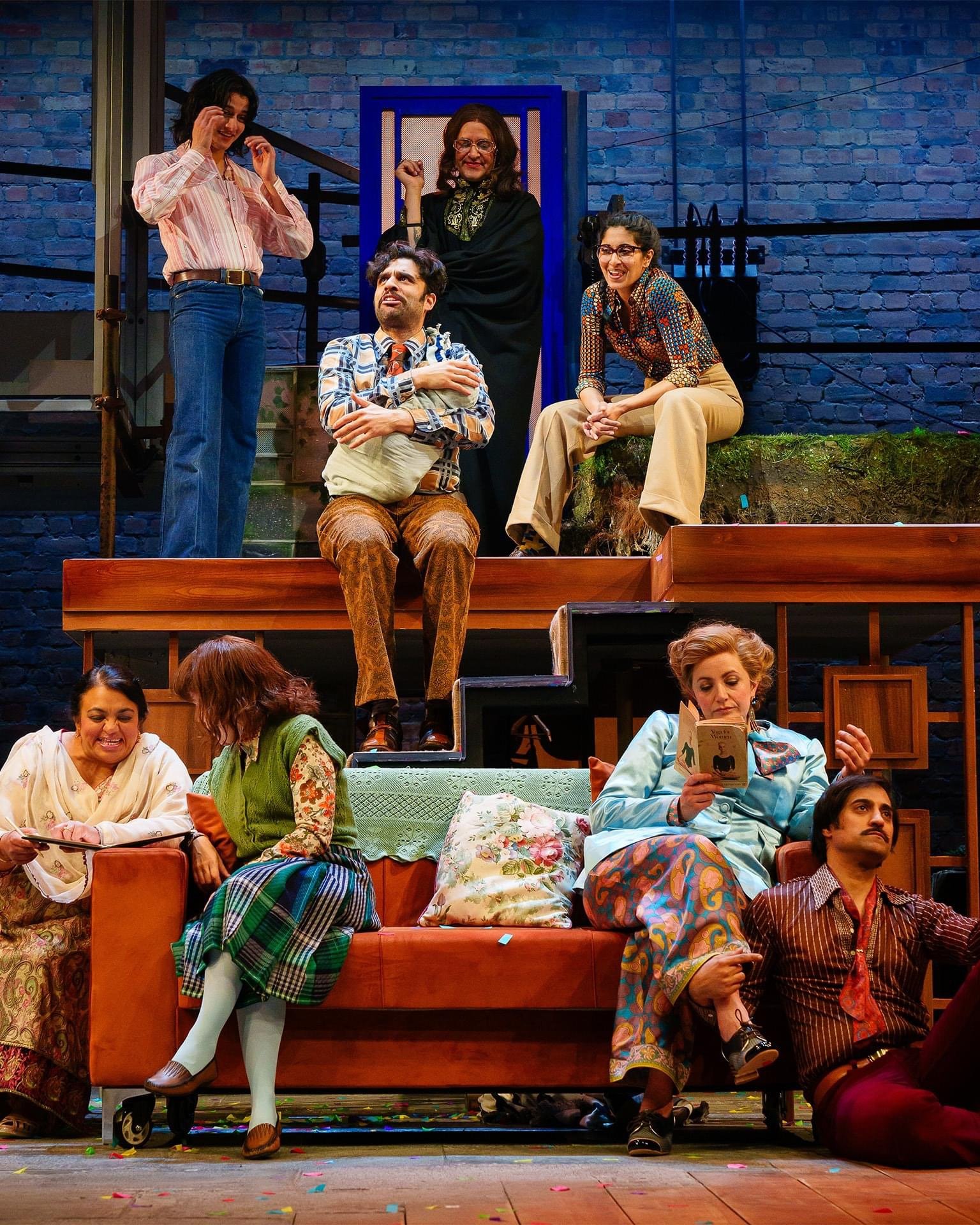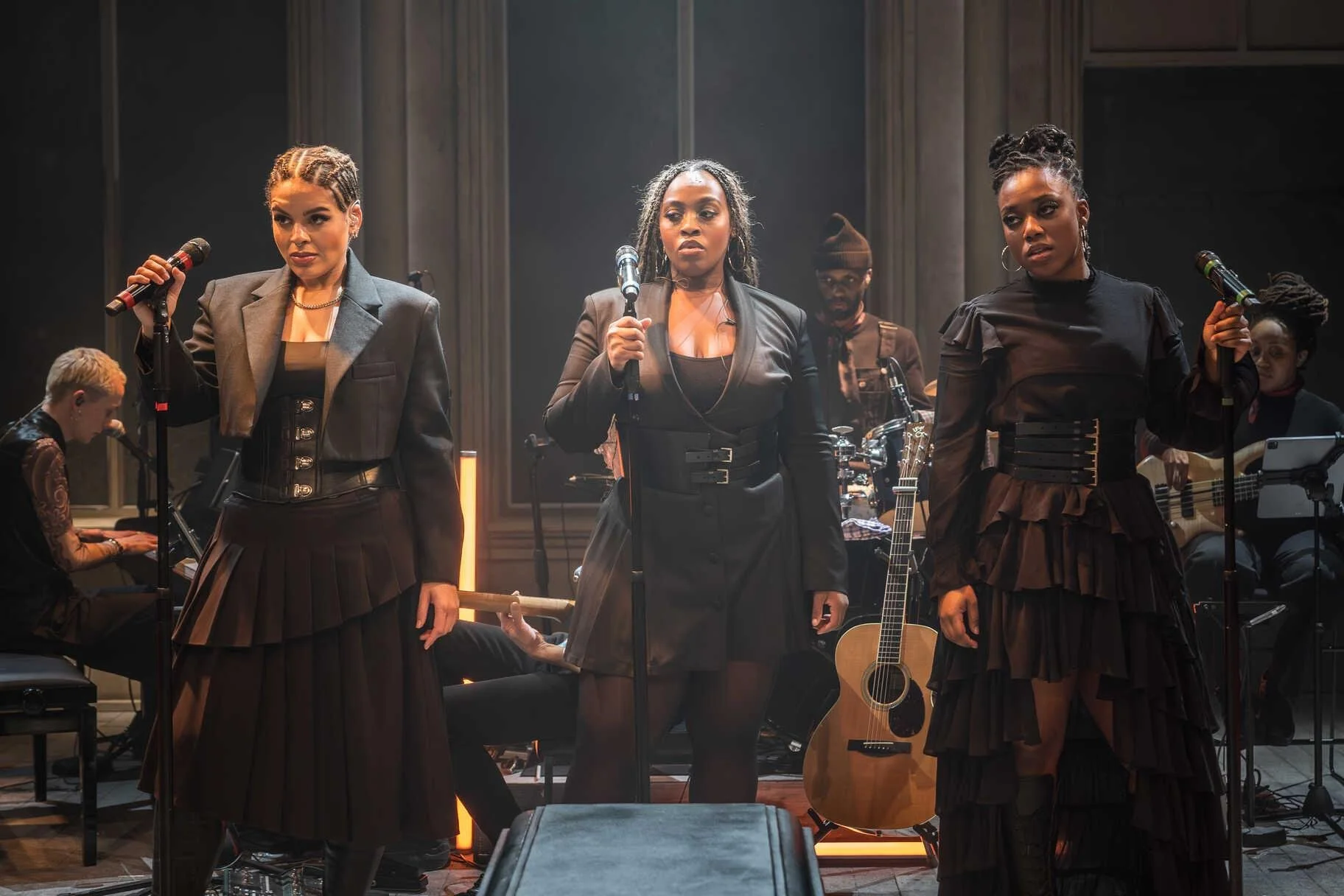The Buddha of Suburbia, RSC’s Swan Theatre Review
Reviewed by Hollie for Theatre and Tonic
Disclaimer: Gifted tickets in exchange for an honest review
Caution: This production includes: strong language, talk of depression and sexual themes from the outset and throughout.
In the RSC’s Swan Theatre, their first show of the season, The Buddha of Suburbia is a modern adaptation of Hanif Kureishi’s 1990s novel. The show opens in 1976, with seventeen year old protagonist Karim, played by Dee Ahluwalia, narrating life in the UK in the late 70s.
The Freddie Mercury lookalike, wearing Levi flares and heeled boots, begins to tell the story of life in the London suburbs. With inflation at 13% and the rise of Margaret Thatcher and her political campaign in the coming years, the themes and news of the day were highly relatable for the evening’s international audience. The themes of class, religion and culture are explored well and it is a thought provoking production that allows time for reflection and understanding.
But as Karim says, this is not a show about politics, but it is about celebrating his new job. The story begins in the future, with Karim explaining that his dreams have come true, as he has been approached by a theatre director. Ewan Wardrop plays Matthew Pyke, the chaotic and outrageous theatre director. Ewan brings another layer of humour and a sprinkle of show business to the story and his scenes prior to the interval are particularly splendid.
Karim continues to tell the story of his life and upbringing with a white mother and an Asian father. We experience the trials and tribulations he faces as a mixed race child in the seventies. Karim has reached the age between being a teenager and becoming an adult and he is pondering his future. He has lots of interests and wants to live his own life but also feels society’s and his heritage's expectations lay heavy on his shoulders.
Dee’s depiction of his character allows for audience participation from the outset, and he is perceptively able to show the development of his character throughout the show, by connecting with the audience through his intense eye contact and relatable narration.
Haroon, Karim’s father, played by actor Ankur Bahl, is a hilarious and quirky character who had the audience laughing hysterically within the first five minutes. There are laughs a minute throughout the show and Ankur’s portrayal of his character sets the tone for the rest of the production. Haroon’s life in London is a far cry from his life in Bombay, however, he does bring his friend Anwar with him and their families grow up together in the suburbs.
With some inhaling and exhaling and a small number of yoga poses, Haroon’s relationships are heavily explored throughout the story. The family dynamics and the fact that the muslim men want to rebel and go against their traditions and culture in many ways, make for an interesting and experimental production.
The scenery and set is superb, and constantly evolves with the use of props and music throughout the show. The use of the different levels and stairs to tell two stories on the stage at once was extremely clever and provided the audience with an insight into the growing relationships and how they change between the different characters.
The set, designed by Rachana Jadhav, provides depth not only to the characters but also to the production, as music and sounds appear in different places on the stage and from different characters. The transitions between different scenes and conversations are seamless, whilst a prominent soundtrack containing George Michael and Beegees hits are interspersed. The ensemble really adds to the story as they each play a range of characters. They add movement, depth and humour to the production and the camaraderie between the cast can clearly be seen.
Karim’s aunt and uncle, Jeeta and Anwar have been cast perfectly. Rina Fatania, who plays Jeeta is absolutely phenomenal, and she plays her numerous parts well in both acts. Simon Rivers, who plays Anwar, is also a fascinating character and although he has a smaller part to play, he does provide an abundance of humour and sarcasm throughout the show.
Emma Rice as director, is able to bring the music, acting, humour, themes and relationships all together and create this vivid and radical exploration of life and liberation.
This production took me completely by surprise and it was a fantastic opening show for the Swan Theatre as part of the RSC’s Spring and Summer season. Will Karim become the prodigal son? Will he be able to find joy and happiness in his paisley shirt or will he need to practice some more namaste? I encourage you to pay a visit before the show ends on Saturday 1st June 2024.
☆ ☆ ☆ ☆ ☆






